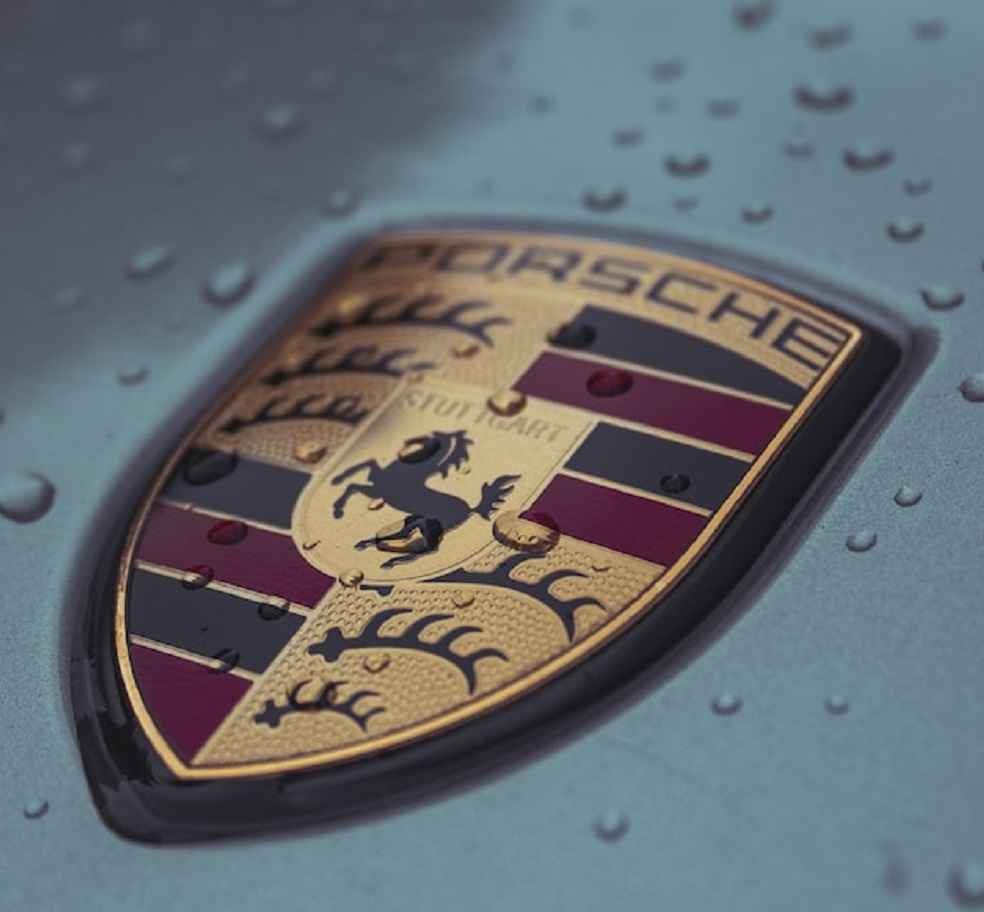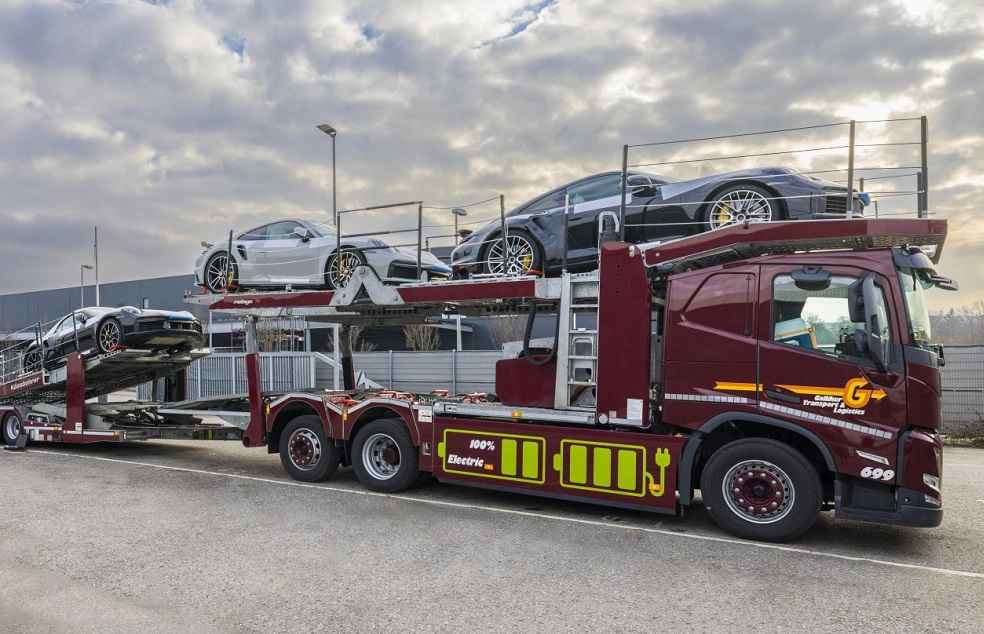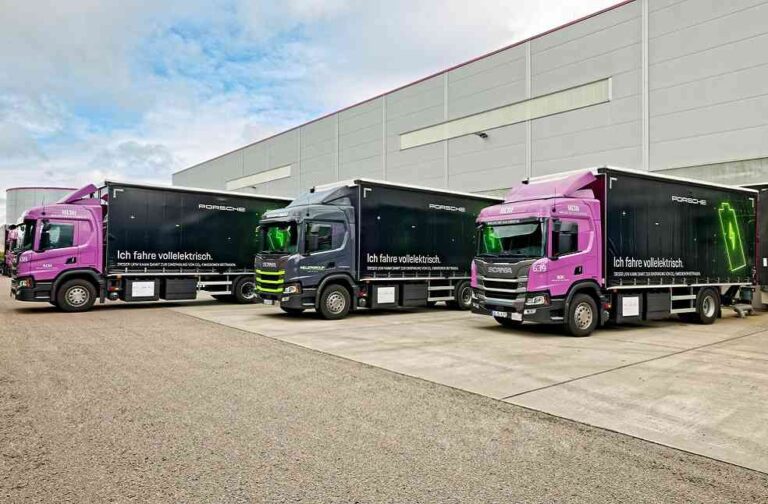Porsche AG continues to champion sustainability within its operational framework by incorporating alternative drives across its transport logistics. The introduction of a new fleet of electric heavy goods vehicles (HGVs) at the Zuffenhausen, Weissach, and Leipzig sites underscores the automaker’s commitment to environmental stewardship.
Collaborating with logistics partners, Porsche has deployed six electric HGVs to manage the movement of production materials within these facilities. These vehicles augment an established fleet of 22 biogas-fueled HGVs, broadening the ecological benefits of Porsche’s logistics operations. A noteworthy addition includes an electric HGV designated for the transportation of new vehicles to Switzerland from Zuffenhausen, indicating a comprehensive adoption of green technologies across the company’s supply chain.

Porsche is also at the forefront of synthetic fuel utilization. A rigorous trial, under the supervision of the Karlsruhe Institute of Technology (KIT), examines the performance of HVO100, a synthetic diesel produced from residual and waste materials. This test involves twelve HGVs from the existing fleet that now operate on this cleaner, synthetic fuel.
Albrecht Reimold, Member of the Executive Board for Production and Logistics at Porsche AG, articulates the strategic relevance of these initiatives: “Decarbonisation is an integral part of our sustainability strategy. The use of trucks with alternative drives and fuels is an important step toward achieving our ambitious goals. In doing so, we are consciously opting to use a mix of drive types that are appropriate to how the vehicles are deployed”
Long-standing usage of biogas-powered HGVs at Porsche is complemented by the addition of electric vehicles, signaling a robust shift towards electric mobility in heavy transport. Logistics collaborators such as Keller Group, Müller – Die lila Logistik, and Elflein are committed to powering these electric HGVs with green electricity, thereby amplifying the sustainability of these operations.

The ongoing evaluation of HVO100 synthetic diesel also presents encouraging outcomes. Conducted in collaboration with KIT and Müller – Die lila Logistik, this initiative has recorded over one million kilometers, achieving a reduction of more than 800 tons of CO2 without sacrificing fuel efficiency or engine dependability. This experiment validates the potential of synthetic fuels to diminish carbon emissions under actual operating conditions.
By integrating both rail and road modalities, and focusing on sustainable vehicle production, Porsche adeptly navigates its logistics to align with its decarbonization targets. With a CO2-neutral production status at the Zuffenhausen and Leipzig sites since 2020, and a persistent shift towards regenerative energy sources, Porsche establishes itself as a paragon of environmental responsibility within the automotive domain.
EV WORLD | BorgWarner Clinches Key eMotor Deals with XPeng for Upcoming Electric SUVs





